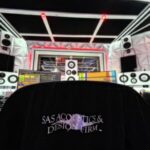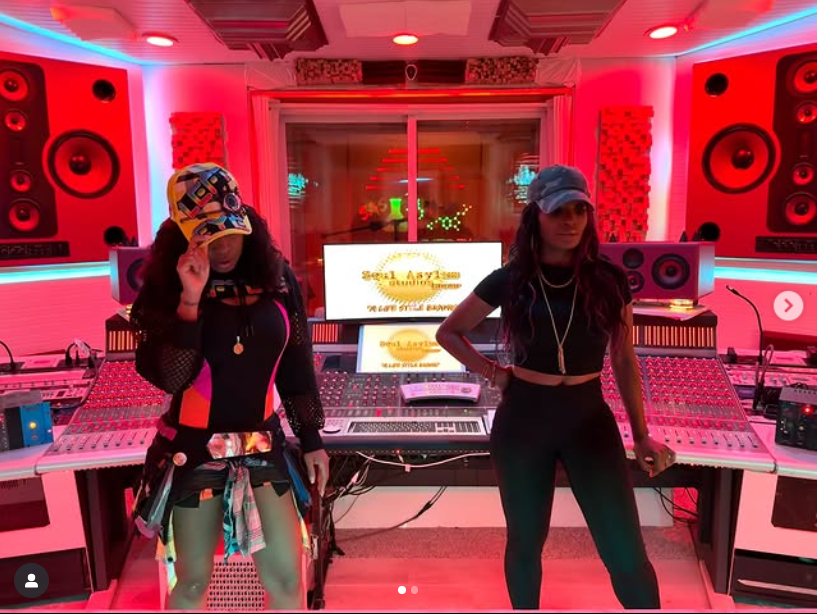Recording music in an analog studio is much more than just a nostalgic experience. It is a creative decision that shapes tone, performance, and the overall production process.
Today, when digital workstations are quite common, powerful, and accessible, analog studios are still relevant and used by many. Recording studios Atlanta continue to offer analog options for artists seeking that authentic sound. In this blog, we will discuss why artists, producers, and engineers still choose analog spaces. And how that choice influences the final recording.
The Sound: Warmth, Saturation, and Harmonic Richness:
Using analog equipment like tape machines, tube preamplifiers, and vintage compressors adds a subtle distortion to the sound. This distortion and saturation of sound is what many people often call warmth in music. These analog devices add overtones and gentle compressions, which in turn help in enhancing the perceived depth of sound. Furthermore, it creates a pleasing interaction between the music tracks.
The digital simulation can also approach these musical characteristics. However, many music studios in Atlanta Georgia still prefer to use the original, nonlinear, warm, and natural sound of real analog hardware.
The unpredictability of traditional analog captures the recording better and makes it feel alive.
Tactile Workflow And Performance Energy:

The analog studios place more on hands-on interaction. It uses physical knobs, patching cables, and adjusting signal chains in order to create a tactile connection to the sound. Something that a mouse, keyboard, and screen can never completely copy.
The atmosphere of a room makes a lot of difference. That’s why many professionals choose a studio with vintage gear and tape machines that inspire committed performances. Sound engineers make quick and spontaneous decisions with analog hardware devices. Which helps them in maintaining momentum during sessions, which in turn produces better emotional honesty.
An Analog Recording studio creates a more immersive environment and helps you avoid distraction throughout the creative process.
Creative Discipline Through Limitation:
Analog, being a traditional method, imposes a few limitations on music production. The tape device has a limited time and a specific number of tracks. Whereas vintage consoles offer fewer instant recalls than an average digital session.
No wonder it takes too much time on endless editing and micromanagement. This commitment helps in recording with better clarity of vision and natural consistency. Which is something that is often hard to achieve when work is done entirely in a box.
Being creatively disciplined can push you to deliver your best work in the moment.
( Also Read More – Introduction to the Soul Asylum Studios )
Distinctive Signal Chains For Certain Instruments:
Some of the musical instruments work quite well with analog signal paths. For instance, instruments like electric guitar, bass, drum room microphones, and particular vocal styles. They often gain presence and character when they are used with tube preamps, plate reverbs, and analog compressors.
The hardware saturates and responds to pulses by producing a musical glue across the entire music mix. This is the reason why many sound engineers use analog chains for shaping the tonal relationship between different tracks. Which is quite difficult to copy, relying solely on digital software.
Mixing Perspective: Summing And Coloration:
Mixing on analog consoles is quite different from mixing in a DAW. Mixing in analog imparts subtle interactions between the channels, hardware EQs. Furthermore, the analog compressors add a coloration that helps in aligning the tracks together.
Many music engineers today prefer the urgency and hands-on approach of a desk. Where pushing the faders and twisting EQ knobs produces rapid and unique musical results. Moreover, the coloration that the analog equipment provides reduces the need for intense processing, allowing the mixed tracks to breathe more naturally. This, in turn, makes the final music mix more organic and less sterile.
Psychological and Cultural Values:
There is a psychological element to working in a dedicated analog studio. Booking time slots in an analog studio is a sign that shows your commitment and helps in elevating your performances and focus. Music artists often get inspired in a room that speaks creative history, legendary gear, or has a community of experienced engineers.
This cultural value is not science, but it contributes to an environment where creativity flourishes.
Archival Considerations and Physical Matters:
Analog tapes, when stored properly, can provide a durable physical master. Many historic recordings have been recovered from tapes while preserving their sonic character intact. Some music producers and artists find tape masters subtle and meaningful.
Where digital files are quite crucial for the modern-day workflow and distribution. Analog master, the tangible medium, is cherished by many as a piece of musical history.
( Also Read About – Binaural Audio Mix VS A Stereo Audio Mix- Which One You Should Go For? )
Practical Limitations and Where Digital Is Better:
You can’t use an analog master anywhere. Analog master is not a consistent choice that you can use for any project. Digital workflow works best when you want precision editing, easy recall, pitch correction, and remote collaboration. Digital files are comparatively less costly and are quite flexible for contemporary production needs. Especially when you have a very strict timeline, or budget is an issue.
If your project needs a lot of editing, virtual instruments, or multiple remote contributors, a digital approach is what you should go for. Going digital is the best option when your project requires maximum adaptability.
Hybrid Workflow: Best of Both Worlds:
Many music studios Atlanta combine the power of analog tone and digital conveniences to yield the best results. Producers may use tapes to track or route signals through analog preamps and compressors. That too, before transferring audio to a DAW for editing and mixing.
Hybrid workflows are quite common as they offer the benefit of both worlds. They provide you with tonal benefit without sacrificing modern production efficiencies. This balance allows producers to customize the process to each project’s needs.
Conclusion:
Where analog recordings provide warmth, depth, and creative focus that digital recordings can never fully copy. Digital recordings offer you flexibility and precision. Analog captures a unique musical essence.
For many musicians and artists, the ideal and best option is to use a hybrid version of both. That means leveraging the analog character with digital convenience. In order to create music that is both emotionally engaging and technically polished.

